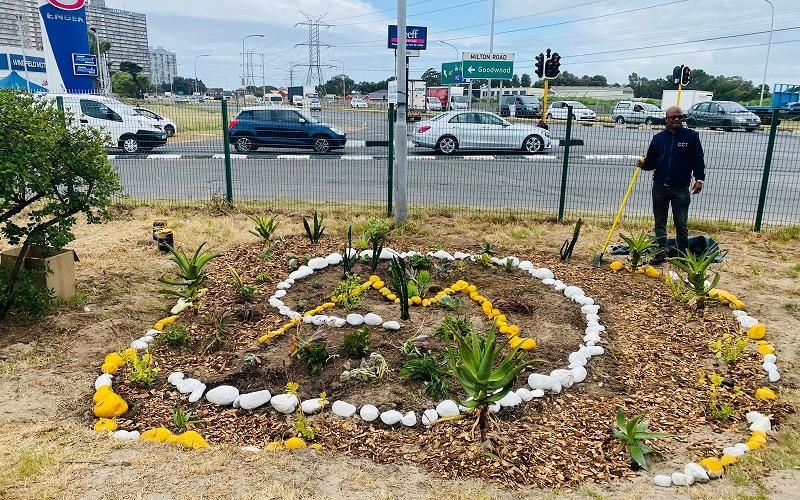Revamping Cape Town: Community Efforts to Convert Illegal Dump Sites into Pleasant Environments. The Urban Waste Management and Community Services and Health directorate have partnered with local communities to transform areas littered with illegal dumps into clean and enjoyable spaces. The strategy includes waste disposal, planting native plants, and extensive landscaping at two selected sites. The community’s participation is vital in these rejuvenation initiatives, cultivating a deeper sense of responsibility and pride in their environment.
A collaborative effort to enhance the urban scenery in Cape Town has been initiated by the Urban Waste Management (UWM) and Community Services and Health (CS&H) directorate. These entities have partnered with local communities to establish a goal of converting areas littered with illegal dumps into clean and enjoyable spaces.
Illegally Dumped Waste: A Persistent Issue
The problem of illegal waste disposal is a widespread issue in numerous communities within Cape Town, one that is impossible to overlook. Despite a yearly budget exceeding R100 million devoted to cleaning up nearly 3,000 classified ‘hotspots’, the reappearance of waste piles almost instantly after an area has been cleaned is a common sight. This recurrent predicament suggests that illegal dumping has unfortunately become a routine activity in these regions, signaling the need for a more assertive strategy to tackle this deep-rooted behaviour.
A Collaborative Approach to Beautification
Keen on addressing this issue, the UWM directorate has sought assistance from the Recreation and Parks Department under the CS&H directorate. In collaboration with local residents and neighbourhood watch groups, they embark on a mission to infuse new life into these affected areas. Their strategy includes waste disposal, planting native plants, and extensive landscaping at two selected sites. Milton Street in Goodwood and Orange Street in Ruyterwacht were the regions that reaped the rewards of this transformation effort.
The Power of Community Involvement
The community’s participation is vital in these rejuvenation initiatives. By including residents in the beautification process, a deeper sense of responsibility and pride in their environment is cultivated. Consequently, community members are more likely to look after these areas, making them less attractive for illegal waste disposal.
Typically, illegally dumped waste lures more waste. People tend to add to an existing pile of rubbish rather than deface a clean area frequented by respectable citizens. Thus, the transformation of these dumping hotspots proves to be an effective deterrence.
City and Community Partnerships: A Key to Success
The city persistently explores creative methods to address these waste hotspots. Yet, the success of these efforts often relies on the strength of community alliances due to budget and capacity constraints. The city thus motivates residents and community groups keen on minimizing dumping in their regions to connect with the Events and Partnerships team.
The Recreation and Parks Department assumes a crucial role in building community-driven alliances via formal agreements with ‘Friends Groups’. These partnerships encourage continuous development and maintenance of the city’s parks. For official Friends of Parks groups or for more information about this initiative, residents and community groups can get in touch with David Dunn.
Future Opportunities and Commitment
While resources for beautification projects might not always be readily available, the city promises to store your contact details for future partnership opportunities. These could involve either beautification or other interventions, tailored to the specific requirements of the community.
Alderman Grant Twigg, the Mayoral Committee Member for Urban Waste Management, emphasizes the importance of community effort in this fight against illegal dumping, stating, “Teamwork indeed makes the dream work.”
Additionally, the city delivers a weekly garbage collection service to all formal and recognized informal households. They urge property owners, landlords, and tenants to request additional bins to handle waste produced on their properties, which is a critical measure to prevent further dumping and pollution in communities.
This tale is not solely about beautification. It is a testament to the strength of communities uniting to reclaim their spaces, rebuild a sense of pride in their environment, and ultimately discourage the harmful practice of illegal dumping. It is a story of reclaiming the city, one clean and beautiful space at a time.








